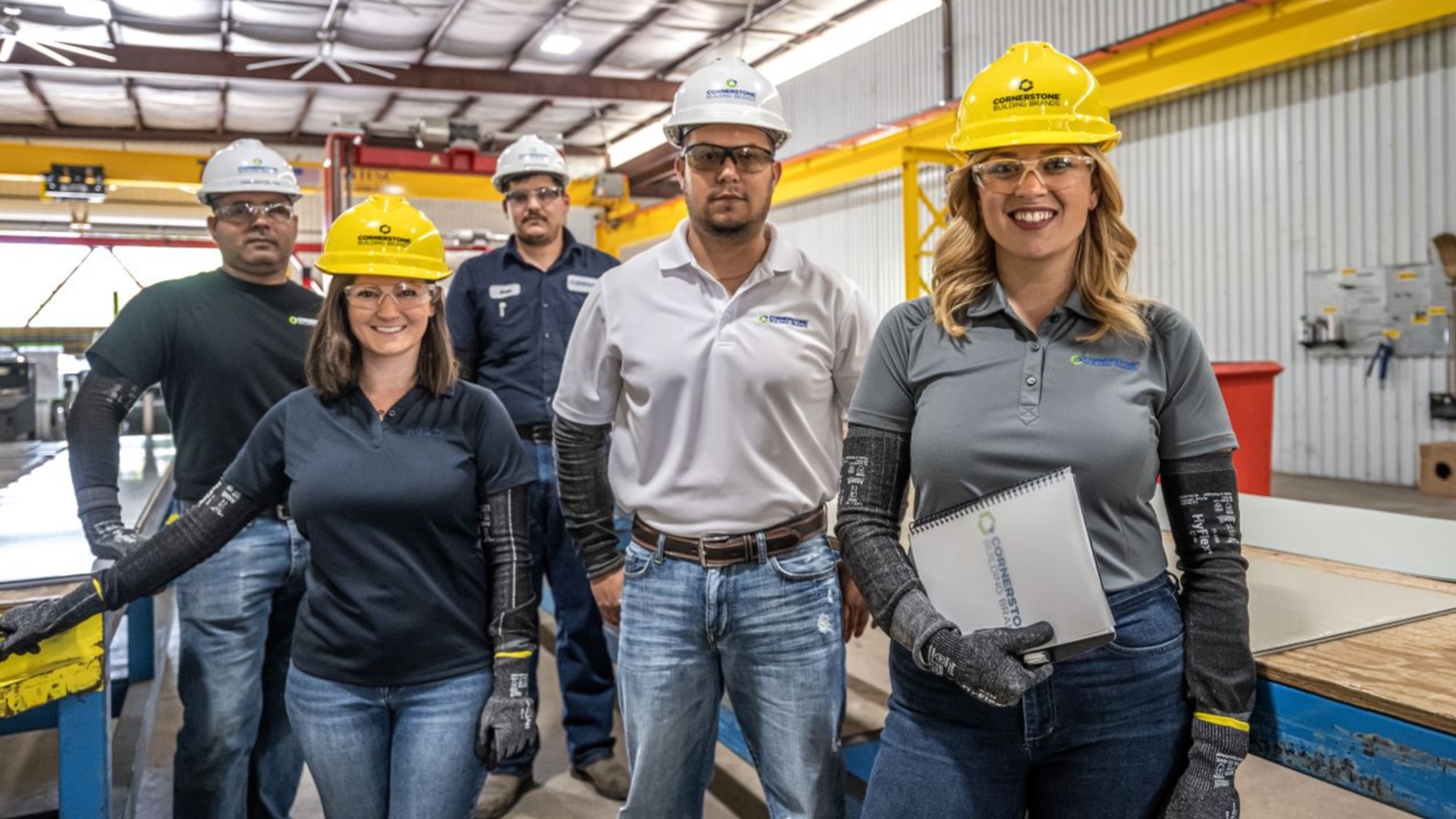Cornerstone Building Brands Creates a Diverse, Inclusive Workplace

To Carol Enneking, creating a diverse and inclusive workplace is less of a race to a finish line than an ongoing expedition that never really ends.
A journey: “Realizing a workplace culture where DE&I is not just prioritized but celebrated was a critical aspiration,” said Enneking, Cornerstone Building Brands’ vice president of talent management, learning and diversity. “It’s a journey to get there, but not a destination where you will ever arrive to stay. You expect your workplace to evolve as highly diverse and inclusive, but you can always do more,” she said.
Taking action: Cornerstone Building Brands, a leading manufacturer of exterior commercial and residential building products, has been taking decisive actions to increase diversity and inclusion since the company’s inception in 2018. Extra focus has been given to its DE&I strategy since 2020, shortly after the murder of George Floyd, when the company began activating its DE&I commitment with employees.
- “I spent a great deal of time on this in 2020,” Enneking said. “We had a group of executives that mobilized to provide a [company] response. It was a bit of a new frontier for us, especially as a new company, deciding to speak up and send a message about this. We worked hard to set the right tone.”
- It also became clear that a more focused DE&I approach would help the company in these situations and in the day-to-day creation of an inclusive culture.
- Now, the business has a DE&I team at the ready to drive their strategy forward: its DE&I Council, which meets monthly and focuses on strategic alignment; communications; coaching and training; and metrics and governance.
More diversity in management: Cornerstone Building Brands aspires to build a more diverse and inclusive organization that reflects the diversity of the communities where it operates. It is also focused on increasing the number of diverse employees in Cornerstone Building Brands’ management teams.
- “We have a very diverse frontline population,” Enneking said. “It’s close to 50% frontline employees of color and about 28% women, but we see those numbers decrease in management. The challenge is to bring that same representation into the management.”
- To engage employees in creating an inclusive culture, the DE&I Council disseminated a survey that led to the creation of four distinct employee resource groups: Women!, Patriots, Pride and Unity. All meet regularly to learn together, plan events, address specific employee concerns and foster mentoring opportunities.
- Another way forward has been the company’s 2021 signing of the NAM’s Pledge for Action, in which “manufacturers commit to taking 50,000 tangible actions to increase equity and parity for underrepresented communities, creating 300,000 pathways to job opportunities for Black people and all people of color.” In the first year after signing this pledge, Cornerstone Building Brands took 44 tangible actions toward achieving its commitment to the pledge and its broader DE&I goals.
How far they’ve come: All of Cornerstone Building Brands job descriptions now contain a DE&I statement that highlights its commitment, and the company recently published its first environmental, social and governance report, which included DE&I initiative details.
- Cornerstone Building Brands has worked to ensure that its “recruitment processes are bringing in diverse candidates” and that there is pay-scale parity, particularly in direct manufacturing roles, Enneking said.
- The company also has a reporting mechanism in place for all employees to make leadership aware of potential inclusivity violations or other issues.
- In addition, the manufacturer has instituted manager and employee DE&I learning modules, which comprise unconscious bias and inclusive leadership training led by professional facilitators, as well as accountability measures.
Making an impact: The work has started to pay off, said Enneking, who added that “there has been an increase” in diverse representation among Cornerstone Building Brands’ management. President and CEO Rose Lee, the first Korean American woman to head a Fortune 1000 company, was recently named a Pinnacle Award recipient by the Asian American Business Development Center. The company also recently hired two new female business unit presidents.
- The company has also broadened its search parameters in recruiting, Enneking said. “Diversity has many facets, many of which are not visible. We value diversity of thought and perspectives and are more willing to bring in people who may not have been in [our industry] all their lives but who can learn quickly and have transferable skills. In fact, those hires usually bring us a lot of ideas that we didn’t have. Sometimes you need to look outside to get those.”
